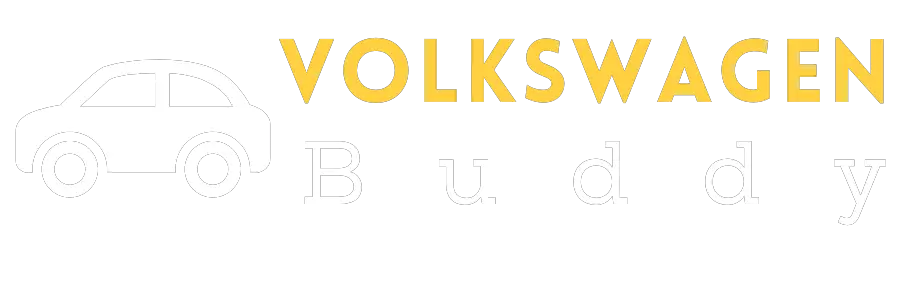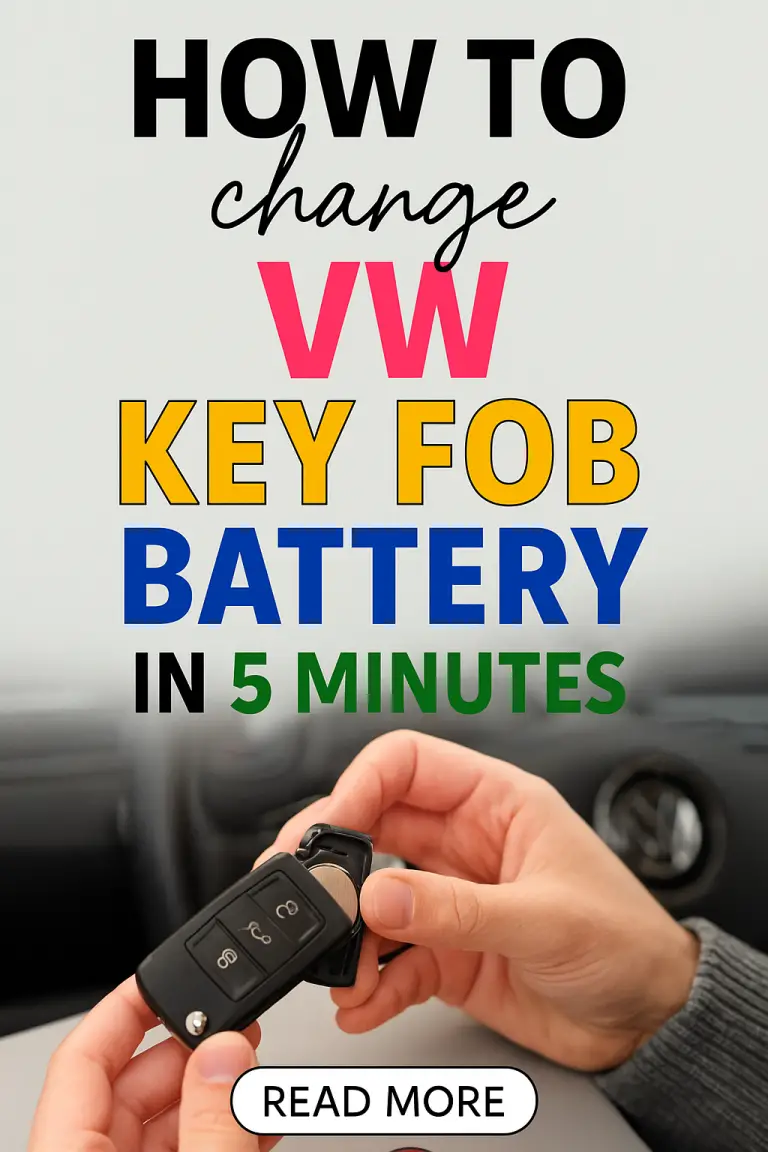Volkswagen Beetle Headlights Not Working [Causes & Proven Solutions]
Do your Volkswagen Beetle headlights not work You’re not alone. This is a common problem that can be frustrating and inconvenient. But don’t worry, there’s a simple fix. In this troubleshooting guide, I’ll walk you through the steps to diagnose and repair the problem. By the end of this guide, you’ll be able to get your headlights working again in no time.
Why Volkswagen Beetle Headlights Not Working
Burnt-out Headlight Bulb
The most common reason for a Volkswagen Beetle headlight not working is a burnt-out headlight bulb. To check if this is the case, turn on your headlights and look at them closely. If one of the bulbs is not glowing, it is likely burnt out and will need to be replaced.
Faulty Headlight Switch
Another common cause of a Volkswagen Beetle headlight not working is a faulty headlight switch. The headlight switch is located on the dashboard and is used to turn the headlights on and off. If the switch is faulty, it may not be able to properly send power to the headlights, causing them to not work.
Loose or Damaged Wiring
The wiring that connects the headlights to the battery and the headlight switch can become loose or damaged, which can prevent the headlights from working. To check if this is the case, inspect the wiring carefully for any signs of damage. If you find any damage, you will need to repair or replace the wiring.
Bad Fuse
A blown fuse can also prevent the headlights from working. To check if this is the case, look in the fuse box for a blown fuse that is labeled for the headlights. If you find a blown fuse, you will need to replace it with a new fuse.
Headlight Ballast Failure
In some Volkswagen Beetles, the headlights are powered by a headlight ballast. The headlight ballast is a small electronic device that regulates the voltage to the headlights. If the headlight ballast fails, it can prevent the headlights from working.
Headlight Assemblies
In some cases, the headlights themselves may be faulty. This can happen if the headlights are damaged or if the lenses are cloudy. If you suspect that the headlights themselves are faulty, you will need to have them inspected by a qualified technician.
How to Troubleshoot: Volkswagen Beetle Headlights Not Working
Your Volkswagen Beetle’s headlights are an important safety feature, so it’s important to troubleshoot any problems that you may have with them. This article will help you identify and fix the issue so that you can get back on the road safely.
Possible Causes
There are a number of possible causes for headlights that are not working. Here are some of the most common:
Burned-out bulbs:
This is the most common cause of headlights that are not working. To check if a bulb is burned out, simply look at it. If the filament is broken or missing, then the bulb needs to be replaced.
Fusible link:
The fusible link is a small piece of metal that protects the headlights from electrical overloads. If the fusible link is blown, it will need to be replaced.
Wiring problem:
The wiring to the headlights can become damaged or corroded, which can prevent the headlights from working properly. To check the wiring, you will need to use a multimeter to test the voltage at the headlights.
Headlight switch:
The headlight switch is a mechanical switch that turns the headlights on and off. If the headlight switch is faulty, it will need to be replaced.
Relay:
The relay is an electrical switch that controls the flow of electricity to the headlights. If the relay is faulty, it will need to be replaced.
Troubleshooting Steps
To troubleshoot the problem with your headlights, you will need to follow these steps:
1. Check the bulbs:
Start by checking the bulbs to see if they are burned out. If the bulbs are burned out, simply replace them with new ones.
2. Check the fusible link:
If the bulbs are not burned out, then check the fusible link. To check the fusible link, you will need to locate it under the hood of your car. The fusible link is usually a small, cylindrical piece of metal with two wires attached to it. To test the fusible link, you will need to use a multimeter. Set the multimeter to the ohms setting and connect the leads to the fusible link. If the multimeter shows a reading of zero ohms, then the fusible link is good. If the multimeter shows a reading of infinity ohms, then the fusible link is blown and will need to be replaced.3. Check the wiring:
If the fusible link is good, then check the wiring to the headlights. To check the wiring, you will need to use a multimeter to test the voltage at the headlights. To do this, connect the positive lead of the multimeter to the positive terminal of the battery and the negative lead of the multimeter to the ground. Then, turn on the headlights and check the voltage at the headlights. If the voltage is present at the headlights, then the wiring is good. If the voltage is not present at the headlights, then the wiring is faulty and will need to be repaired or replaced.
4. Check the headlight switch:
If the wiring is good, then check the headlight switch. To check the headlight switch, you will need to disconnect the wiring from the headlight switch and connect it to a test light. Then, turn on the headlights and check the test light. If the test light comes on, then the headlight switch is good. If the test light does not come on, then the headlight switch is faulty and will need to be replaced.
5. Check the relay:
If the headlight switch is good, then check the relay. To check the relay, you will need to disconnect the wiring from the relay and connect it to a test light. Then, turn on the headlights and check the test light. If the test light comes on, then the relay is good. If the test light does not come on, then the relay is faulty and will need to be replaced.
Conclusion
By following these troubleshooting steps, you should be able to identify and fix the problem with your Volkswagen Beetle’s headlights. If you are unable to fix the problem yourself, you can take your car to a qualified mechanic for further diagnosis and repair.
FAQs: Volkswagen Beetle Headlights Not Working
Why are my Volkswagen Beetle headlights not working?
There are a few possible reasons why your Volkswagen Beetle headlights may not be working. Here are some of the most common:
Burnt-out bulbs: The most common reason for headlights not working is that the bulbs have burnt out. To check if this is the case, simply look at the bulbs and see if they are discolored or cracked. If they are, you will need to replace them.
Fuse: Another possible reason for headlights not working is a blown fuse. To check if this is the case, you will need to locate the fuse box for your Volkswagen Beetle. Once you have found the fuse box, you will need to find the fuse that corresponds to your headlights. If the fuse is blown, you will need to replace it.
Wiring: If the bulbs and fuses are both good, then the problem may be with the wiring. To check if this is the case, you will need to have a qualified mechanic inspect the wiring for your headlights.
Headlight switch: If the bulbs, fuses, and wiring are all good, then the problem may be with the headlight switch. To check if this is the case, you will need to have a qualified mechanic inspect the headlight switch.
How do I fix my Volkswagen Beetle headlights?
To fix your Volkswagen Beetle headlights, you will need to determine the cause of the problem. Once you have determined the cause, you can follow the steps below to fix the problem.
Burnt-out bulbs: To replace a burnt-out headlight bulb, you will need to:
Open the hood of your Volkswagen Beetle.
Locate the headlight housing for the burnt-out bulb.
Remove the retaining screws or clips that hold the headlight housing in place.
Remove the headlight housing.
Remove the old bulb by twisting it counterclockwise.
Insert the new bulb by twisting it clockwise.
Reinstall the headlight housing.
Tighten the retaining screws or clips.
Fuse: To replace a blown fuse, you will need to:
Open the fuse box for your Volkswagen Beetle.
Locate the fuse that corresponds to your headlights.
Remove the blown fuse.
Insert the new fuse.
Wiring: If the problem is with the wiring, you will need to have a qualified mechanic inspect and repair the wiring.
Headlight switch: If the problem is with the headlight switch, you will need to have a qualified mechanic replace the headlight switch.
How can I prevent my Volkswagen Beetle headlights from not working again?
There are a few things you can do to prevent your Volkswagen Beetle headlights from not working again. Here are some tips:
Use high-quality bulbs: Using high-quality bulbs will help to ensure that your headlights last longer.
Avoid overloading the electrical system: Overloading the electrical system can cause fuses to blow. To avoid this, do not connect too many accessories to your car’s electrical system.
Inspect the wiring regularly: Inspect the wiring for your headlights regularly for signs of damage. If you see any damage, have the wiring repaired or replaced.
Be careful not to bump or damage the headlights: Bumping or damaging the headlights can damage the bulbs or wiring. Be careful not to bump or damage your headlights.
What are the symptoms of a bad headlight?
There are a few symptoms that can indicate that you have a bad headlight. Here are some of the most common symptoms:
The headlight is not working at all: This is the most obvious symptom of a bad headlight.
The headlight is flickering or dim: This can be caused by a loose connection or a problem with the bulb.
The headlight is pointing in the wrong direction: This can be caused by a problem with the headlight assembly or the wiring.
The headlight is making a buzzing or humming noise: This can be caused by a problem with the headlight assembly or the wiring.
What are the dangers of driving with a bad headlight?
Driving with a bad headlight can be dangerous for a number of reasons. Here are some of the dangers:
You are less visible to other drivers: This can increase your risk of being involved in a collision.
You may not be able to see obstacles in the road: This can also increase your risk of being involved in a collision.
You may not be able





![2011 Volkswagen Jetta Oil Light Turns On Then Off [Reasons + Fixed]](https://volkswagenbuddy.com/wp-content/uploads/2024/05/2011-volkswagen-jetta-oil-light-turns-on-then-off-reasons-fixed_4525-768x531.jpg)
![2017 Volkswagen 5000 Off [You Should Try This]](https://volkswagenbuddy.com/wp-content/uploads/2024/05/2017-volkswagen-5000-off-you-should-try-this_4535-768x531.jpg)